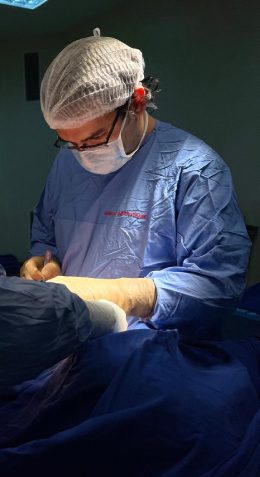Liposuction

Liposuction
Liposuction, also known as lipoplasty or suction lipectomy, is a cosmetic surgical procedure aimed at removing stubborn fat deposits from specific areas of the body to improve body contour and proportion. It is one of the most commonly performed cosmetic procedures globally, sought after by individuals looking to sculpt and reshape their bodies.
The term "liposuction" is derived from the Greek words "lipos" (meaning fat) and "suction," reflecting the method used to remove fat from the body. During the procedure, small incisions are made in the targeted area, and a thin, hollow tube called a cannula is inserted. The cannula is connected to a vacuum device or syringe, which suctions out the excess fat, leaving behind a smoother and more contoured appearance.
People choose liposuction for various reasons, including dissatisfaction with certain body areas that are resistant to diet and exercise, such as the abdomen, thighs, hips, buttocks, arms, and chin. Liposuction can help individuals achieve a more proportionate and toned physique, boosting self-confidence and body image.
While liposuction can provide immediate results, it's important to note that it is not a long-term solution for weight loss. The procedure removes fat cells permanently from the treated areas, but if a person gains weight after liposuction, the remaining fat cells in other parts of the body can still expand, potentially compromising the results. Therefore, maintaining a healthy lifestyle with regular exercise and a balanced diet is essential to preserve the results of liposuction.
After liposuction, it's important to avoid certain activities to ensure proper healing and optimal results. Patients should refrain from strenuous exercise, heavy lifting, and bending over for several weeks following the procedure. Compression garments may also be worn to reduce swelling and support the treated area during the recovery process.
Like any surgical procedure, liposuction carries risks and potential complications. These may include infection, bleeding, fluid accumulation, numbness, uneven contours, and adverse reactions to anesthesia. In rare cases, more serious complications such as blood clots or damage to internal organs may occur. It's crucial for individuals considering liposuction to thoroughly discuss these risks with their surgeon and ensure they choose a board-certified professional with experience in the procedure.
Ideal candidates for liposuction are generally in good overall health, have realistic expectations about the outcome of the procedure, and are close to their ideal weight. Liposuction is not a substitute for weight loss or a treatment for obesity but rather a way to address localized areas of fat that are resistant to diet and exercise.
In conclusion, liposuction is a popular cosmetic procedure aimed at removing excess fat deposits from specific areas of the body to improve body contour and proportion. While it provides immediate results, it's important to maintain a healthy lifestyle to ensure long-term success. Liposuction carries certain risks, so it's essential for individuals considering the procedure to choose a qualified surgeon and understand the potential risks and benefits. Overall, liposuction can be an effective way to achieve a more sculpted and toned physique, boosting self-confidence and enhancing overall body image.


